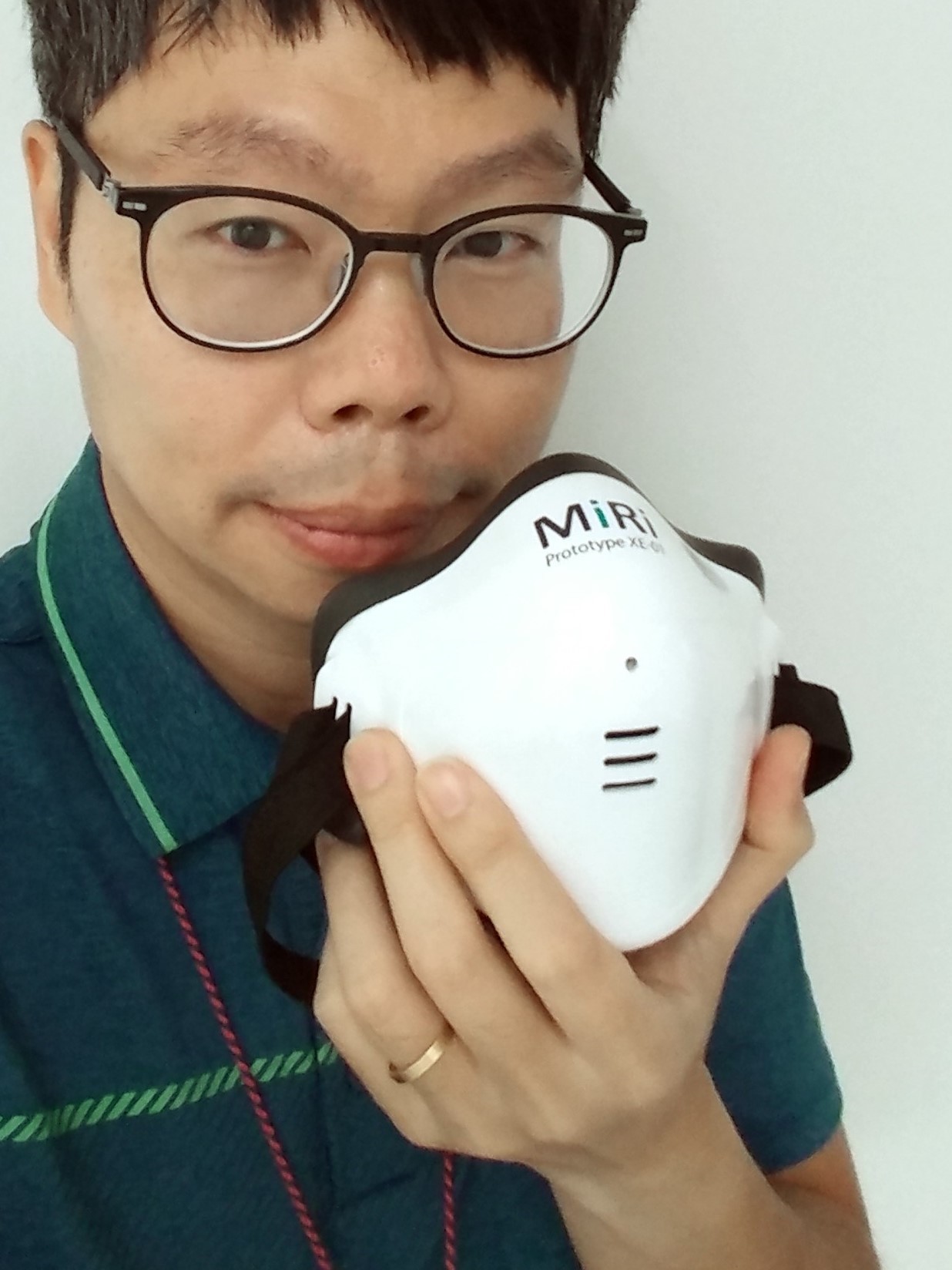[Herald Interview] ‘Masks can become new type of wearable device’
By Song Su-hyunPublished : Sept. 13, 2020 - 17:01

In the future, people could be shopping for masks at electronics retailers instead of at pharmacies. Those masks would be capable of monitoring wearers’ breathing patterns, captured particles and gas, and be able to connect with other devices like smartphones.
This is not just a dream for Beelee Chua, a professor at the electric engineering school of Korea University.
In 2018, professor Chua’s research team, in collaboration with Ewha Womans University, developed a micro ionizer-based mask that would offer permanent protection and easier breathing.
According to his description, the mask uses a micro ionizer to electrically charge particles, which allows the particles to be efficiently removed by an electric field.
“It is like magnetizing the particles and then removing them by magnets,” the professor said in an online interview with The Korea Herald.
“The key benefit of this technology is that it will allow the wearer to breathe freely while providing the same protection.”
The professor who specialized in micro ionizers had the idea that consistently popped in his mind during his Ph.D. research, he said.
During the 2015 MERS outbreak, the professor saw many seniors and children having trouble breathing through the masks, or sometimes wearing masks incorrectly because of breathing difficulties.
Compared to LG Electronics’ recent HEPA filter-based electronic mask that was donated to Severance Hospital of Yonsei University, the micro ionizer mask has distinct technological advantages, according to Chua.
The research team’s mask has adopted a new filtration system called “electrostatic precipitation.”
An electrostatic precipitator is a filtration device that removes fine particles, like dust and smoke, from a flow of gas using the force of an induced electrostatic charge minimally impeding the flow of gases through the unit.
“Each morning when we comb our hair, we notice an invisible force causes our hair to stick to our comb,” Chua explained. “The same invisible force allows Saran wrap or cellophane to cling to and protect our sandwiches. This invisible force is what engineers called electrostatic force, and we use this invisible force in our mask to pull dust and microorganisms from the air as we breathe, freely.”
The mask has a battery life of more than 30 hours, longer than LG’s 10-hour span.
It is 100 grams which is lighter than the rival product, while having features like self-sterilization and anti-clogging, Chua said.
“Inertia filtration based masks have reached their technological limits. Wearers will always have breathing difficulties,” the professor said. “But then the most important factor in electronic masks is to be as light as possible. So, we wanted the battery to be removed to make it lighter.”
The micro ionizer mask technology also includes sensing capability, the professor said, which could further improve the mask as a new type of wearable device.
The sensors in the mask can be used for monitoring breathing patterns while distinguishing particle size and distribution. It could be developed to send the captured particles and gas in the mask to an external laboratory for further analysis.
The team is also considering microphone and Bluetooth connections.
“During pandemic times like the latest COVID-19 outbreak, lightweight masks that allow wearers to breathe freely while providing the same protection will be needed,” Chua said.
Regarding commercialization of the mask, the professor’s team is in talks with multiple contract manufacturers, while the technology’s US patent is in the works.
“We are targeting the medical sector first, seeing the need for such masks from doctors and nurses rather than general consumers,” he said. “But once people get comfortable with the technology, it will be used widely and could be purchased at retailers like E-mart.”
By Song Su-hyun (song@heraldcorp.com)
















![[KH Explains] Hyundai's full hybrid edge to pay off amid slow transition to pure EVs](http://res.heraldm.com/phpwas/restmb_idxmake.php?idx=652&simg=/content/image/2024/04/18/20240418050645_0.jpg&u=20240418181020)

![[Today’s K-pop] Zico drops snippet of collaboration with Jennie](http://res.heraldm.com/phpwas/restmb_idxmake.php?idx=642&simg=/content/image/2024/04/18/20240418050702_0.jpg&u=)